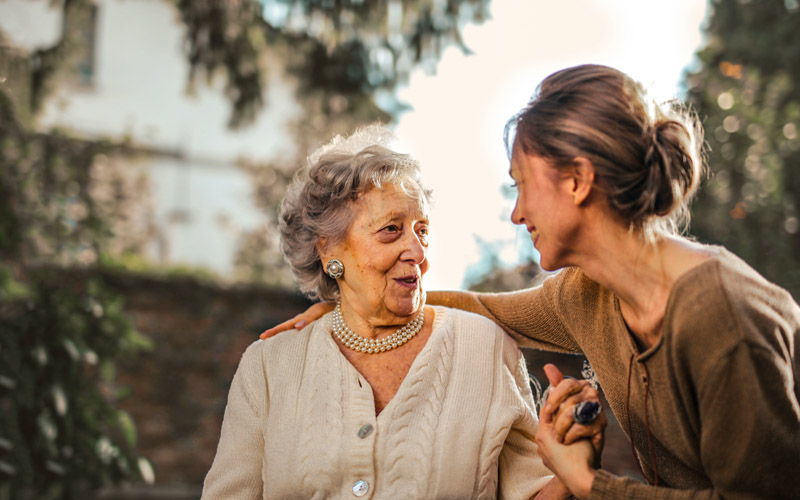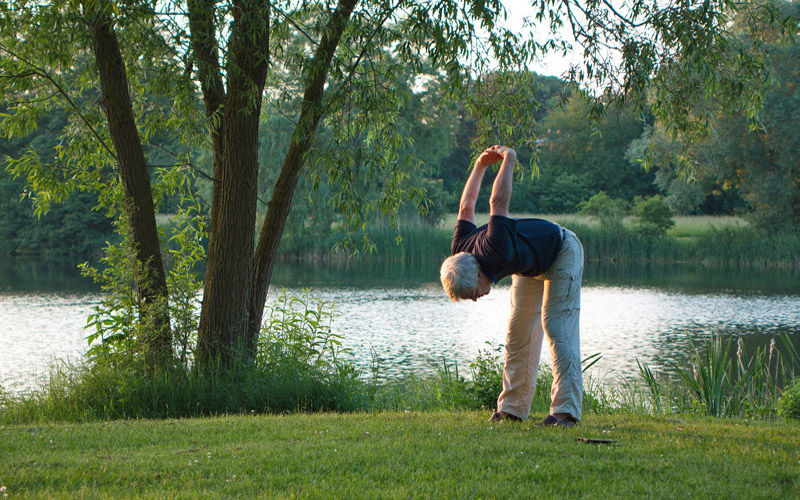End-of-Life Decisions… this is a hard subject for most.
Continue readingDignity of Risk and Caring for an Elder
When Caring For The Dementia Patient Is Hard On The Caregiver
When you are caring for someone with dementia, you need support. It isn’t something you can do alone without getting burned out quickly. There are other caregivers out there in similar situations who can share tips and ideas with you to make your days more manageable. There are local support groups as well as online blogs and forums. In fact, there are so many online options you can get lost in them and never get away from the computer screen. Pick a few that seem to work for you and stick with them. When I have a question about a specific problem, I usually go to the Alzheimer’s Association. For example, I get asked frequently how to deal with the constant questions from a person living with dementia? Here’s an entry from a site full of ideas, The Alzheimer’s Reading Room.

The author who shared her suggestions for dealing with those constant questions has her own blog about living with dementia, Dementia By Day. She is the coordinator of a memory care home and shares her stories and successes and observations. Her blog is great for caregivers or family members who are new to the world of dementia. One of her reminders to all of us caring for someone with dementia, which is my favorite, is “It’s never about the outcome when someone has dementia—it’s all about the process.”
Michele
Choosing Care Wisely – the conversation between provider and patient
Choosing Wisely® aims to promote conversations between providers and patients by helping patients choose care that is:
- Supported by evidence
- Not duplicative of other tests or procedures already received
- Free from harm
- Truly necessary
 An initiative of the ABIM Foundation, Choosing Wisely is working to spark conversations between providers and patients to ensure the right care is delivered at the right time. Participating organizations have created lists of “Things Providers and Patients Should Question” which include evidence-based recommendations that should be discussed to help make wise decisions about the most appropriate care based on a patients’ individual situation.
An initiative of the ABIM Foundation, Choosing Wisely is working to spark conversations between providers and patients to ensure the right care is delivered at the right time. Participating organizations have created lists of “Things Providers and Patients Should Question” which include evidence-based recommendations that should be discussed to help make wise decisions about the most appropriate care based on a patients’ individual situation.
Take a look at the list of questions the American Geriatrics Society put together for older adults vising their physician.
Alzheimer’s Caregiving – Rummaging Behavior
Rummaging and hoarding are common behaviors associated with Alzheimer’s disease. Although these actions may seem random and meaningless to the frustrated caregiver, rummaging actually serves a purpose in the middle stages of dementia. You won’t be able to stop the behavior but understanding what’s behind it may make it easier for you to cope with it.
I found a great description of what is happening on the blog The Dementia Queen.
“In the middle stages, rummaging is largely a coping mechanism for language deficits and the need to be repetitive. Once speech and comprehension skills decline, a person in the middle stages has to find another way to interact with the environment. Using her hands to explore the world is simply a function of survival- if she can’t tell you that she is hungry, then she will just start searching for food herself. Repetitive actions, such as pacing and saying the same word or phrase over and over again, is usually a behavior used by the person to relieve anxiety and search for reassurance.
It is also the case that people with Alzheimer’s in the moderate stage need to have meaning in their lives. They need to do something other than sit. They need to have control over something – because throughout their lives, they engaged in meaningful action to one or another degree and had some control over what they did or didn’t do.”
There are many websites with tips on how to approach caregiving for someone with dementia. HelpGuide.org is one of them.
Exercising Seniors Hold Alzheimer’s At Bay
You have another excellent reason to get out and exercise. This time you are holding Alzheimer’s at bay. Research studies with seniors have looked at the impact of exercise on brain function or on its effects on slowing the progress of dementia. A recent study at the Cleveland Clinic looked at the actual physiology of the brain and found that the brains of people who exercise do not atrophy even if they are at high risk for Alzheimer’s.
As many as 1 in 4 of us can carry a specific gene – ApoE4 – that triples the risk of developing Alzheimer’s. Those are pretty bad odds, but the Cleveland Clinic followed people with this gene and found that those who exercised regularly showed no shrinkage of their hippocampus. In other words, even though they are at high risk for Alzheimer’s disease their brains looked just like the brains of people at much lower risk for the disease.
This link to an article about the study gives you more specifics about the extent of exercising you need to do to keep that gene under control.
Bringing Seniors the Quality Care They Deserve
We all realize that September 2013 will long be remembered by those in Boulder County and other communities along the Front Range. I, along with everyone at Dignity Care, wish all those who have had to deal with this huge upheaval in their lives, the courage and the strength to put the pieces of their lives back together, one step at a time.
For many of our senior citizens in Boulder County, the flood has greatly affected/changed their lives. Add to that the confusion about Medicare, Medicaid, Obama Care, and the recent chaos of our government, many seniors are feeling lost and in need of assistance. So, as Healthcare Professionals we must help our senior citizens deal with all the changes and educate them as to where help is available to them. Our county provides many senior resources that can really make a difference in their lives.
In the past few years, we are pleased to say, Dignity Care has experienced a tremendous growth spurt. Dignity Care owner, Mary Kirk and Dignity Care Director, Ruth Rowse, RN have gained the confidence of the senior community in Boulder County through their model of Case Management and heartfelt caregiving. We have appreciated this trust. We strive every day to bring quality care to those we serve to the highest possible levels.
We always feel honored to be of service to our clients. Along with our basic homecare services, Dignity Care also has Registered Nurses and Geriatric Case Managers that can help seniors in many ways – from something as simple as Medication Administration to the complexities of crisis intervention.
Let’s all keep working to provide our seniors with the wonderful care they deserve.
Dignity Care









